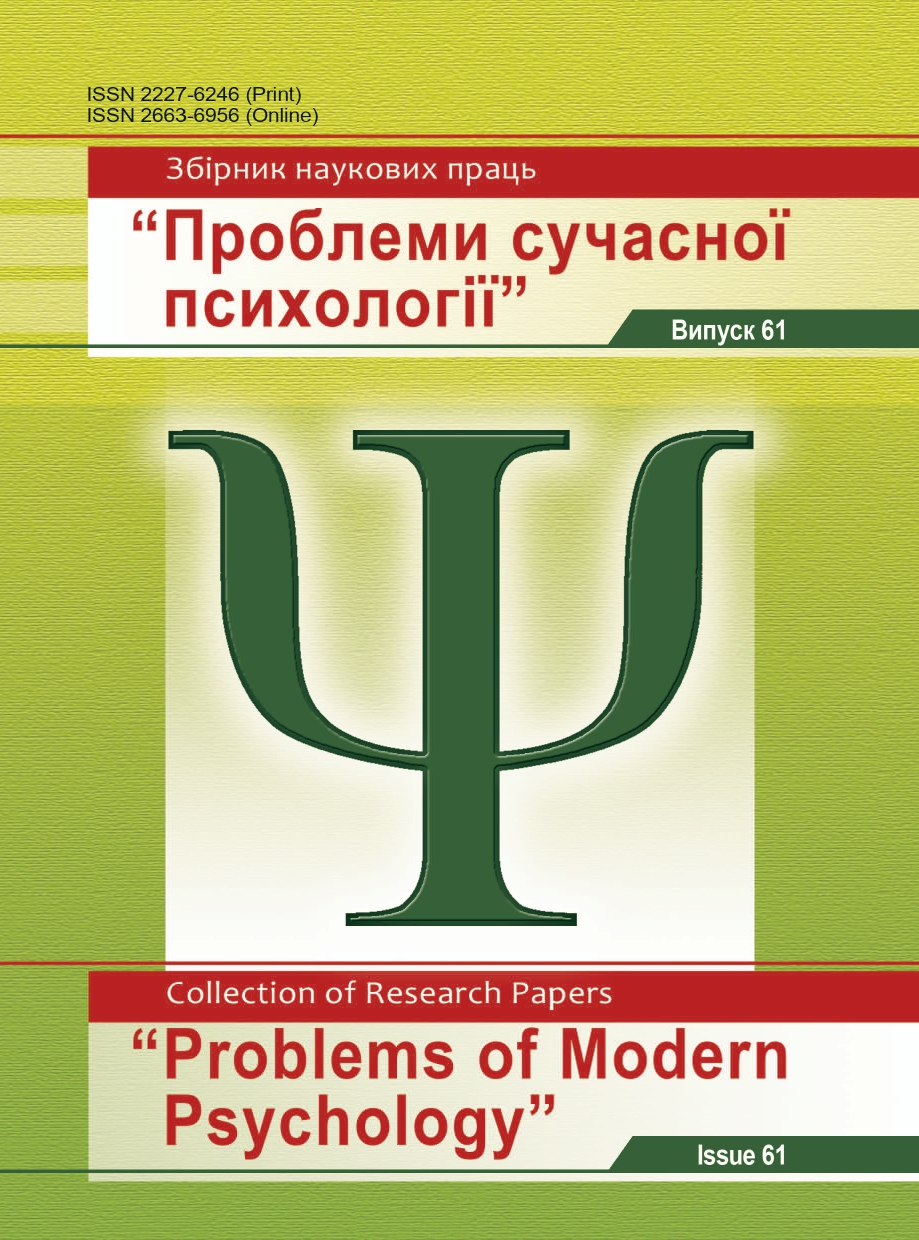Analysis of the Effects of Applying Reflective Ways of Actualizing the Psychological Resourcefulness of a Personality
DOI:
https://doi.org/10.32626/2227-6246.2023-61.138-163Keywords:
actualization of psychological resources, eventuality, self-investment, internalization, analysis of experience, existential analysis, effect of actualizationAbstract
The purpose of the article is to find out the effects of actualizing psychological resourcefulness empirically in various reflective ways.
Methods of the research. One of the qualitative methods of data processing was applied – the method of psychological casuistry, as well as empirical methods - comparative and cluster analysis. The empirical study was conducted according to the Joyce’s model, which allows comparing the results of two identical stages of research for analysis and reflection. A psychological survey (selfassessment method) determines the level of psychological resources.
Research results. The hypothesis that an indicator of the actualization of psychological resources is an increase in the level of resource management indicators was confirmed: for each of the methods of actualization of resources, there was a certain increase in the level of knowledge of self-own resources and the ability to accommodate and update them. The hypothesis that different changes in the level and ratio of certain psychological resources will occur for each reflective method of resource actualization is partially confirmed, in particular, using the example of the contingency method and the method of analyzing experience. In the way of eventuality, a person’s faith in goodness becomes effective and realistic, and the ability to update one’s resources becomes concrete; in the way of analyzing experience, a person’s faith in goodness acquires the opportunity to be revealed through mercy in various and unpredictable life situations, and the ability to renew one’s resources also acquires concretization.
Conclusions. It is not advisable to determine the most effective among the methods of actualization of resources, at the same time, the results of the study make it possible to assert that the reflexive method of actualization of psychological resources is effective for a person, by which she can increase the level of functional and basic resources. It is appropriate to pay attention to the ratio of actualization resources (predictors) and actualization (effects), namely: the resource «faith in good», the resource «kindness to people», the resource «helping others», the ability to operate resources – knowledge of resources, the ability to update and accommodate them.
Downloads
Published
How to Cite
Issue
Section
License
Copyright (c) 2023 Shtepa Olena

This work is licensed under a Creative Commons Attribution-NonCommercial 4.0 International License.
Copyright
The Editorial Board has the full right to publish original scientific papers containing results of theoretical and experimental research works which are not currently subject to review for publication in other scientific editions. The Author shall transfer to the editorial board of the Collection the right to spread the electronic version of the paper, as well as the electronic version of the paper translated into English (for papers originally submitted in Ukrainian and Russian) by all kinds of electronic means (placement at the official website of the Collection, electronic databases, repositories etc).
The Author of an article reserves the right to use materials of the paper, without approval with the editorial board and the founders of this Collection: a) partially or fully, for educational purposes; b) for writing own dissertation papers; c) for preparation of abstracts, conference reports and presentations.
The Author of an article can place electronic copies of the paper (including the final electronic version downloaded from the official website of the Collection) at:
- personal web resources of all Authors (websites, webpages, blogs etc.);
- web resources of the institutions where the Authors are employed (including electronic institutional repositories);
- non-profit public access web resources (for example, arXiv.org).
But in all cases, it is obligatory to have a bibliographic reference to the paper, or a hyperlink to its electronic copy placed at the official website of this Collection.






